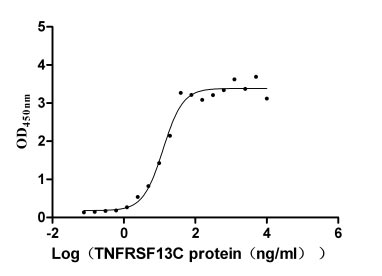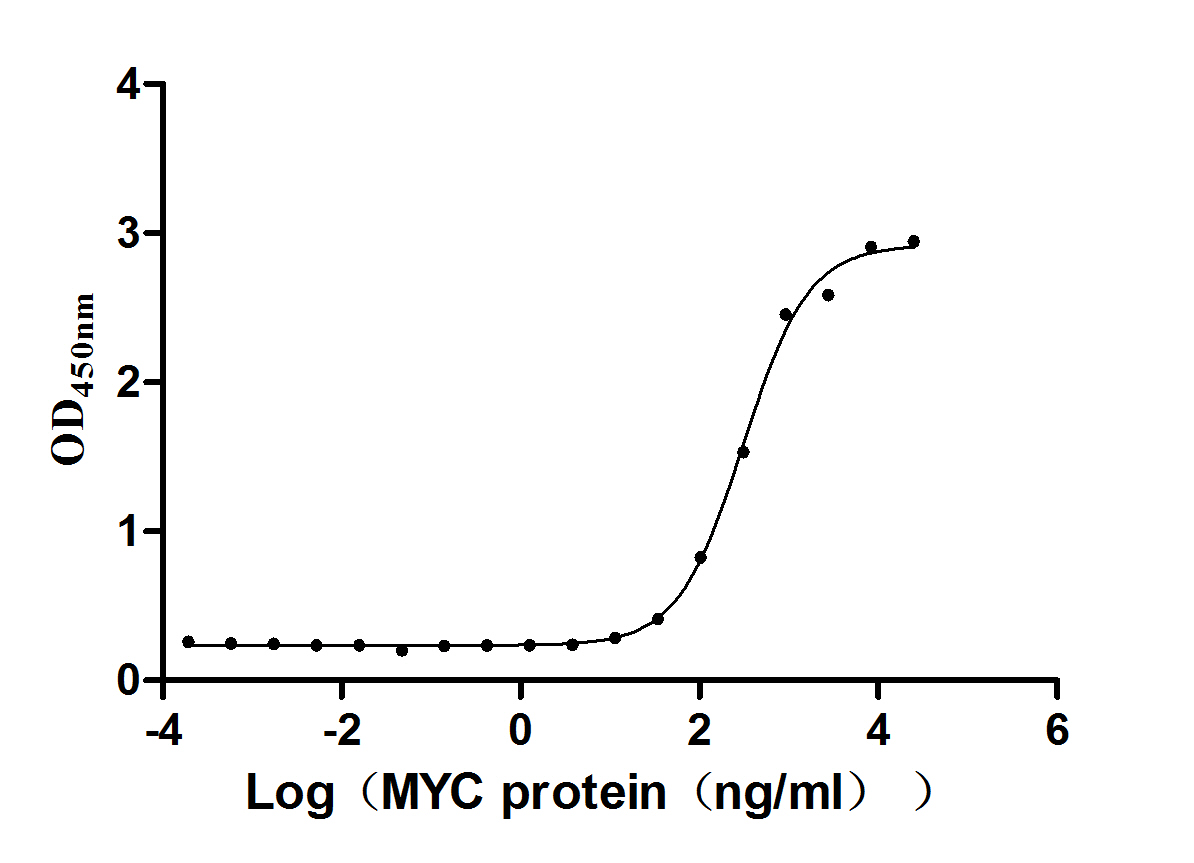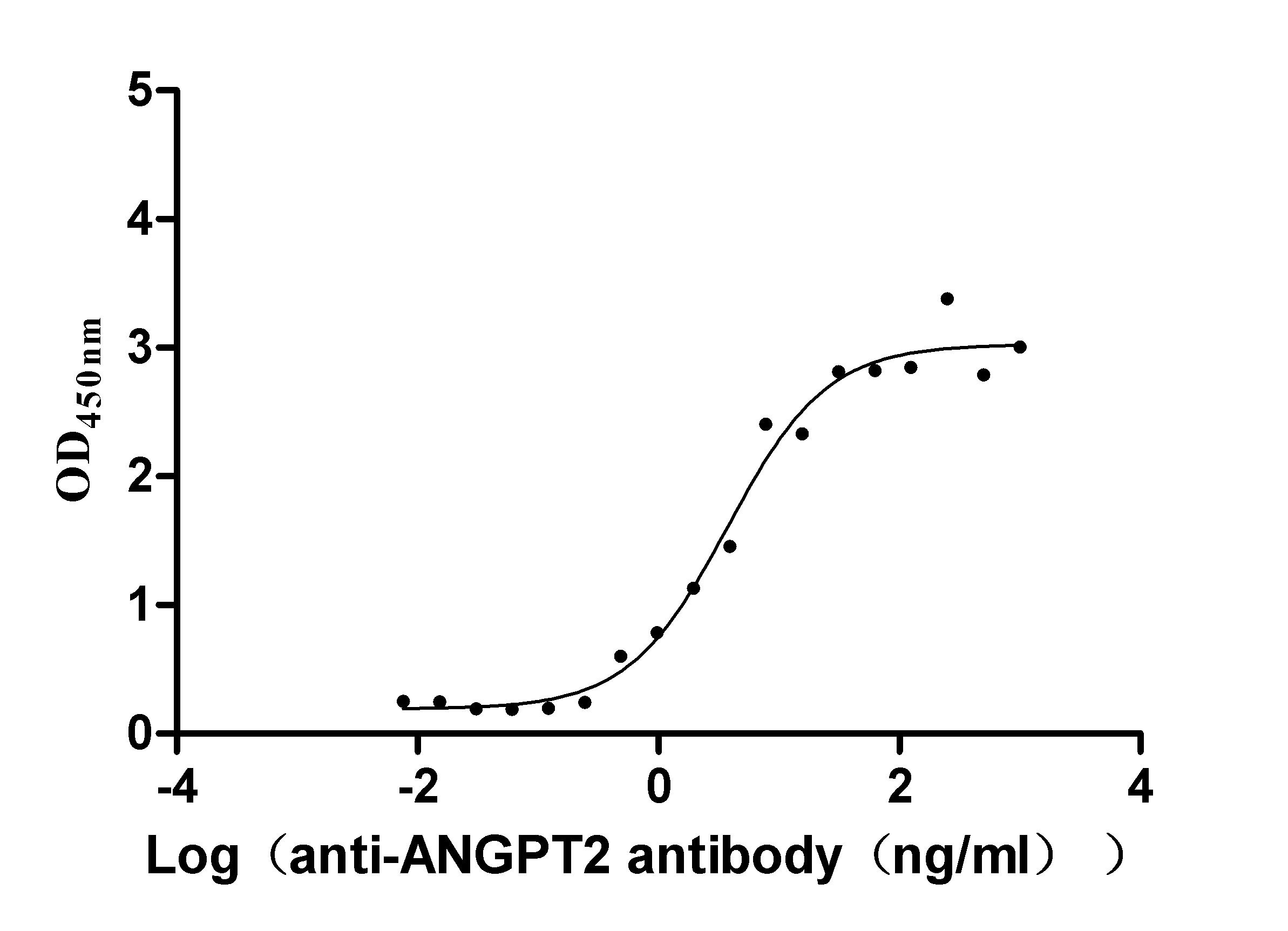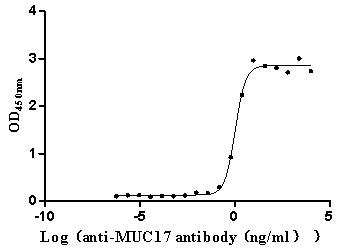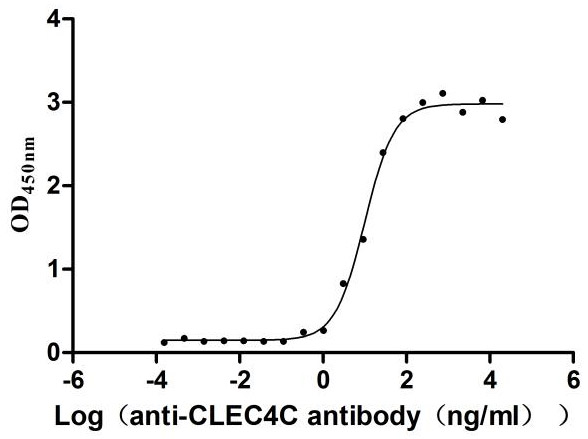Recombinant Human Threonylcarbamoyladenosine tRNA methylthiotransferase (CDKAL1)
-
中文名称:Recombinant Human Threonylcarbamoyladenosine tRNA methylthiotransferase(CDKAL1)
-
货号:CSB-CF716574HU
-
规格:
-
来源:in vitro E.coli expression system
-
其他:
产品详情
-
基因名:CDKAL1
-
Uniprot No.:
-
别名:CDKAL1; Threonylcarbamoyladenosine tRNA methylthiotransferase; CDK5 regulatory subunit-associated protein 1-like 1; tRNA-t(6A37 methylthiotransferase
-
种属:Homo sapiens (Human)
-
蛋白长度:full length protein
-
表达区域:1-579
-
氨基酸序列MPSASCDTLLDDIEDIVSQEDSKPQDRHFVRKDVVPKVRRRNTQKYLQEEENSPPSDSTI PGIQKIWIRTWGCSHNNSDGEYMAGQLAAYGYKITENASDADLWLLNSCTVKNPAEDHFR NSIKKAQEENKKIVLAGCVPQAQPRQDYLKGLSIIGVQQIDRVVEVVEETIKGHSVRLLG QKKDNGRRLGGARLDLPKIRKNPLIEIISINTGCLNACTYCKTKHARGNLASYPIDELVD RAKQSFQEGVCEIWLTSEDTGAYGRDIGTNLPTLLWKLVEVIPEGAMLRLGMTNPPYILE HLEEMAKILNHPRVYAFLHIPVQSASDSVLMEMKREYCVADFKRVVDFLKEKVPGITIAT DIICGFPGETDQDFQETVKLVEEYKFPSLFINQFYPRPGTPAAKMEQVPAQVKKQRTKDL SRVFHSYSPYDHKIGERQQVLVTEESFDSKFYVAHNQFYEQVLVPKNPAFMGKMVEVDIY ESGKHFMKGQPVSDAKVYTPSISKPLAKGEVSGLTKDFRNGLGNQLSSGSHTSAASQCDS ASSRMVLPMPRLHQDCALRMSVGLALLGLLFAFFVKVYN
Note: The complete sequence including tag sequence, target protein sequence and linker sequence could be provided upon request. -
蛋白标签:N-terminal 10xHis-tagged
-
产品提供形式:Liquid or Lyophilized powder
Note: We will preferentially ship the format that we have in stock, however, if you have any special requirement for the format, please remark your requirement when placing the order, we will prepare according to your demand. -
缓冲液:Lyophilized from Tris/PBS-based buffer, 6% Trehalose, pH 8.0
-
储存条件:Store at -20°C/-80°C upon receipt, aliquoting is necessary for mutiple use. Avoid repeated freeze-thaw cycles.
-
保质期:The shelf life is related to many factors, storage state, buffer ingredients, storage temperature and the stability of the protein itself.
Generally, the shelf life of liquid form is 6 months at -20°C/-80°C. The shelf life of lyophilized form is 12 months at -20°C/-80°C. -
货期:Basically, we can dispatch the products out in 1-3 working days after receiving your orders. Delivery time may differ from different purchasing way or location, please kindly consult your local distributors for specific delivery time.Note: All of our proteins are default shipped with normal blue ice packs, if you request to ship with dry ice, please communicate with us in advance and extra fees will be charged.
-
注意事项:Repeated freezing and thawing is not recommended. Store working aliquots at 4°C for up to one week.
-
Datasheet & COA:Please contact us to get it.
相关产品
靶点详情
-
功能:Catalyzes the methylthiolation of N6-threonylcarbamoyladenosine (t(6)A), leading to the formation of 2-methylthio-N6-threonylcarbamoyladenosine (ms(2)t(6)A) at position 37 in tRNAs that read codons beginning with adenine.
-
基因功能参考文献:
- Non-significant association was seen in the two single nucleotide polymorphisms (SNPs) of CDKAL1 (rs7754840) and CDKN2A/2B (rs10811661) with gestational diabetes mellitus (GDM). PMID: 29544538
- chromosomal region 6p22.3 is a novel susceptibility locus for nsCL/P. The location of the risk variants within the CDKAL1 intronic sequence containing enhancer elements predicted to regulate the SOX4 transcription may suggest that SOX4, rather than CDKAL1, is a potential candidate gene for this craniofacial anomaly. PMID: 29403086
- More CDKAL1 variants are required to validate the association between CDKAL1 and gestational glycemic traits. PMID: 28502787
- Forced MT1E expression rescues both hypersensitivity of CDKAL1 mutant cells to glycolipotoxicity and pancreatic beta-cell dysfunction in vitro and in vivo. PMID: 28538172
- CDKAL1 gene is associated with development of type 2 diabetes. For the HHEX/IDE locus, such an association is absent. PMID: 29372795
- family-based GWAS of imputed SNPs revealed novel genomic variants in (or near) PTPRG, OSBPL6, and PDCL3 that influence risk for Alzheimer's Disease. rs7609954 in the gene PTPRG, rs1347297 in the gene OSBPL6, and rs1513625 near PDCL3. In addition, rs72953347 in OSBPL6 and two SNPs in the gene CDKAL1 showed marginally significant association with LOAD (rs10456232, P-value=4.76 x 10-7; rs62400067, P-value=3.54 x 10-7). PMID: 26830138
- The multivariate logistic regression analysis with reference to both alleles and genotypes of CDKAL1 SNPs showed significant association, suggesting an important role for this gene in the T2DM pathophysiology. INTERPRETATION & CONCLUSIONS: A significant association was seen of all the three SNPs of CDKAL1 and CDKN2A/B genes with T2DM but none of the two SNPs of HHEX. PMID: 27377502
- Study provides evidence that SNPs of JMJD1C and KCNQ1 are prospectively associated with the risk of type 2 diabetes (T2D) in Korean population. Additionally, CDKAL1 may not be associated with T2D onset over the age of 40. PMID: 28406950
- Our results suggest that rs6908425 in CDKAL1 is associated with the risk of developing SAPHO in Han Chinese populations. People who carry the risk allele T of rs6908425 might be more prone to developing SAPHO syndrome. PMID: 27936930
- We investigated the association between 8 single-nucleotide polymorphisms (SNPs) at 3 genetic loci (CDKAL1, CDKN2A/2B and FTO) with type 2 diabetes (T2D) in a Uyghur population PMID: 26873362
- our data suggested that CDKAL1 gene variants have a significant effect on the response to anti-TNF therapies among Psoriasis patients PMID: 26563541
- Risk alleles for 6 loci increased glucose levels from birth to 5 years of age (ADCY5, ADRA2A, CDKAL1, CDKN2A/B, GRB10, and TCF7L2 PMID: 27049325
- rs10946398 associated with markers of impaired insulin secretion PMID: 26119585
- We observed novel selection signals in CDKAL1 and NEGR1, well-known diabetes and obesity susceptibility genes PMID: 25370040
- study found SNP rs7754840 in CDKAL1, rs864745 in JAZF1, and rs35767 in IGF1 might serve as potential susceptibility loci for type 2 diabetes in the Uyghur population PMID: 25785549
- The rs7754840 and rs7756992 SNPs of the CDKAL1 gene were found to be associated with Gestational Diabetes Mellitus in this south Indian population. PMID: 25723968
- study identified the association between type 2 diabetes risk variants in CDKAL1 and birthweight in Chinese Han individuals, and the carrier of risk allele within SRR had the trend of reduced birthweight. PMID: 26168825
- Provide evidence against a role for dysregulated expression of CDKAL1-v1 in mediating the association between intronic SNPs in CDKAL1 and susceptibility to type 2 diabetes. PMID: 25634229
- The results support a central role of CDKAL1 and TCF7L2 in T2DM susceptibility in Southwest Asian populations and provide a plausible component for understanding molecular mechanisms involved in the disease. PMID: 25483131
- CDKAL1 gene rs7756992 A/G polymorphism was significantly associated with T2DM. The person with G allele of CDKAL1 gene rs7756992 A/G polymorphism might be predisposed to T2DM. PMID: 24185407
- rs7756992 of CDKAL1 gene have a protective effect against diabetic nephropathy. PMID: 24636221
- Variants in CDKAL1 are associated with glucose-induced GIP and insulin response. PMID: 25222615
- Meta-analysis indicated significant association between the IGF2BP2 rs4402960 and CDKAL1 rs7756992 polymorphisms and increased risk of diabetes in Arab populations.[meta-analysis] PMID: 24898818
- CDKAL1-v1-mediated suppression of CDKAL1 might underlie the pathogenesis of type 2 diabetes in individuals carrying the risk Single-nucleotide polymorphisms. PMID: 24760768
- This study reports association of CDKAL1-related SNPs with insulin resistance, a clinical marker related to type 2 diabetes in a cross-sectional cohort of Greek children and adolescents of European descent. PMID: 24695378
- Data indicate the potential importance of CDKAL1 protein and homeobox protein HHEX in glucose homeostasis in this Alaska Native population with a low prevalence of type 2 diabetes (T2D). PMID: 24112421
- Five of these 14 loci had single-nucleotide polymorphisms in European studies while the other nine were different. Further stepwise conditional analysis identified seven secondary signals and an independent novel locus at the 3' end of CDKAL1. PMID: 24013783
- Substantiation of the roles of CAMK1D and CDKAL1 in gluconeogenic and glyconeogenic pathways in primary human hepatocytes. PMID: 23840313
- Evidence for a significant contribution of CDKN2A/B gene rs10811661 and CDKAL1 gene rs7756992 and rs10946398 to type 2 diabetes.[meta-analysis] PMID: 24012816
- TCF7L2 was replicated in this study (P = 0.004; combined analysis P = 3.8 x 10(-6)), and type 2 diabetes SNPs at or near CDKAL1, CDKN2A/B, and IGF2BP2 were associated with CFRD PMID: 23670970
- CDKAL1 may affect such compensatory mechanisms regulating glucose homeostasis through interaction with diet PMID: 23173044
- CDK5 regulatory subunit-associated protein 1-like 1 (CDKAL1) is a tail-anchored protein in the endoplasmic reticulum (ER) of insulinoma cells. PMID: 23048041
- rs7754840 (CDKAL1) was associated in the nonobese type 2 diabetic subgroup, and for rs7903146 (TCF7L2), association was observed for early-onset type 2 diabetes. PMID: 22923468
- None of the 12 SNPs in the six genes (KCNJ11, TCF7L2, SLC30A8, HHEX, FTO and CDKAL1) uncovered in the genome-wide association studies were associated with polycystic ovary syndrome. PMID: 22443257
- Our findings indicated that genetic variants of CDKAL1 and VEGFA on chromosome 6 may contribute to T2D risk in Chinese population. PMID: 22437209
- The associations between SNPs of TCF7L2, CDKAL1, SLC30A8 and HHEX and the development of DR and DN. PMID: 22487833
- CDKAL1 might influence the level of glycosylated hemoglobin PMID: 22290723
- A significant association between Type 2 Diabetes Mellitus, an increased Fasting Plasma Glucose and rs7754840 at CDKAL1 in lean Han Chinese. PMID: 21643948
- CDKAL1 rs7754840 and rs7756992, but not CDKN2A/2B rs10811661, are associated with T2DM in Lebanese. PMID: 22119613
- Common variants at CDKAL1 and KLF9 are associated with body mass index in east Asian populations. PMID: 22344221
- Six SNP(rs7754840 in CDKAL1, rs391300 in SRR, rs2383208 in CDKN2A/2B, rs4402960 in IGF2BP2, rs10830963 in MTNR1B, rs4607517 in GCK)risk alleles of type 2 diabetes were associated with GDM in pregnant Chinese women. PMID: 22096510
- Variants in cdkal1 gene have been reproducibly associated with decreased first-phase insulin secretion and development of type 2 diabetes. PMID: 21908934
- CDKAL1 is involved in the pathogenesis of T2 diabetes through impaired beta-cell function. PMID: 21611789
- Single nucleotide polymorphism (SNP) analysis revealed that the sequence variant (rs5015480) near HHEX and two SNPs (rs7756992 and rs9465871) in CDKAL1 were associated with the susceptibility of type 2 diabetes mellitus in females, but not in males. PMID: 21368910
- Single nucleotide polymorphisms in CDKAL1 have no association with polycystic ovary syndrome or related clinical features in Chinese women. PMID: 19718565
- no relationship of CDKAL1 and KCNQ1 polymorphisms to the earlier onset of type 2 diabetes was observed PMID: 21416855
- Interaction between the CDKAL1 polymorphism and dietary energy intake influences the dysglycemic phenotype leading to MetS, possibly through impaired insulin secretion. The CDKAL1 polymorphism may be a marker for MetS in the Japanese population. PMID: 20847106
- there are significant associations between CDKAL1 polymorphisms and type 2 diabetes [meta-analysis] PMID: 20568056
- Data report a novel association between the fetal ADCY5 type 2 diabetes risk allele and decreased birthweight, and confirm in meta-analyses associations between decreased birthweight and the type 2 diabetes risk alleles of HHEX-IDE and CDKAL1. PMID: 20490451
- Studies identified significant association between variants in CDKN2A/B, CDKAL1 and TCF7L2, and type 2 diabetes in a Han Chinese cohort, indicating these genes as strong candidates conferring susceptibility to type 2 diabetes across different ethnicities. PMID: 20161779
显示更多
收起更多
-
相关疾病:Diabetes mellitus, non-insulin-dependent (NIDDM)
-
亚细胞定位:Endoplasmic reticulum membrane; Single-pass membrane protein.
-
蛋白家族:Methylthiotransferase family, CDKAL1 subfamily
-
组织特异性:Expressed in pancreatic islets.
-
数据库链接:
HGNC: 21050
OMIM: 125853
KEGG: hsa:54901
STRING: 9606.ENSP00000274695
UniGene: Hs.657604
Most popular with customers
-
Express system: Mammalian cell
Species: Homo sapiens (Human)
-
Recombinant Human Leukemia inhibitory factor (LIF) (Active)
Express system: Mammalian cell
Species: Homo sapiens (Human)
-
Recombinant Human papillomavirus type 16 Protein E7 (E7) (Active)
Express system: E.coli
Species: Human papillomavirus type 16
-
Recombinant Dog Angiopoietin-2 (ANGPT2) (Active)
Express system: Mammalian cell
Species: Canis lupus familiaris (Dog) (Canis familiaris)
-
Recombinant Human Mucin-17 (MUC17), partial (Active)
Express system: Mammalian cell
Species: Homo sapiens (Human)
-
Recombinant Human C-type lectin domain family 4 member C (CLEC4C), partial (Active)
Express system: Mammalian cell
Species: Homo sapiens (Human)
-
Recombinant Human Dipeptidase 3(DPEP3), partial (Active)
Express system: Mammalian cell
Species: Homo sapiens (Human)


